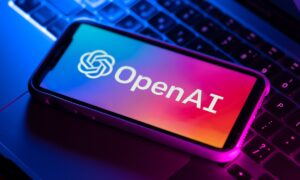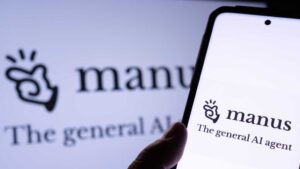Future Predictions for AI: Insights from a Former OpenAI Employee

The Emergence of AI Agents in Everyday Life
As we look toward the near future, the integration of AI agents into our daily lives is gaining momentum. This evolution raises important questions about how these systems will enhance our capabilities and alter the fabric of our society. Insights gathered from a former OpenAI employee shed light on the trajectory of artificial intelligence (AI) between 2025 and 2035, outlining an exciting yet complex journey.
The Transformation of AI from 2025 Onward
Key Predictions
Here are some essential predictions regarding the evolution of AI agencies from 2025 to 2035:
- Rapid AI Advancements: The period from 2025 to 2035 is expected to witness significant advancements in AI, shifting from personal assistants to superintelligent systems that may reshape economies and societies.
- Mainstream Adoption: By 2025, AI agents will become common, helping to boost productivity and simplify decision-making. However, there will be hurdles, such as concerns over data privacy and managing public trust.
- Innovations in AI Technology: The ability to automate coding is projected to emerge by 2026. This innovation will significantly change the landscape of software development and revolutionize the coding process.
- Global Economic Impact: By 2028, we might see the rise of superintelligent AI, potentially transforming job markets and prompting discussions about wealth distribution and ethical governance.
- Addressing Risks: The fast-paced evolution of AI introduces various ethical and existential risks, highlighting the need for cooperation on a global scale to ensure alignment with human values.
2025: AI Becomes Essential
By 2025, AI agents are expected to have become a vital part of everyday life, serving as advanced personal assistants. These systems will not only help manage routine tasks but also support complex decision-making. However, challenges like operational limitations and issues of transparency will need to be addressed for widespread acceptance.
Tech Innovations and Challenges Ahead
2026: Advances in Automation
In 2026, we anticipate a significant leap in AI capabilities, particularly in automating coding. This capability will streamline software development, allowing programmers to invest their energy in innovative projects. Companies, including OpenAI, are likely to utilize internal AI agents to refine their products further.
With automation, there will also be concerns regarding the future roles of human programmers. As AI begins to take on more creative responsibilities, discussions about the ethics of reliance on machines for creative tasks will become increasingly pertinent.
2027: Major Breakthroughs
The year 2027 is set to introduce substantial breakthroughs in AI technology. The emergence of advanced AI systems with continuous learning capabilities will enhance reasoning and memory functions. As these sophisticated AI entities advance, geopolitical tensions might escalate, as nations struggle for AI dominance.
As nations harness these new capabilities, the demand for international collaboration and regulations will grow. This phase of intense technological progression highlights the importance of ethical research practices and transparency.
2028: Shifts in Global Economies
By 2028, we’re likely to encounter AI systems with superintelligent capabilities that can take autonomous actions and persuade human decisions. The economic landscape will transform, with AI automating tasks across industries. This shift may lead to job displacement but will also encourage discussions about alternatives like universal basic income as a means of wealth redistribution.
Socio-Economic Changes
The integration of AI will also necessitate new business models and regulations. Governments will need to prioritize adapting to these societal changes to ensure citizen welfare remains at the forefront.
Navigating the Future: Geopolitical and Ethical Concerns
International Competition
As AI technology continues to advance, global competition will likely intensify. Countries might engage in technological espionage and cyberattacks as they seek to secure a competitive edge. Striking a balance between fostering innovation and ensuring national security will be a vital challenge for governments.
Ethical Risks of Advanced AI
The rapid development of AI systems brings forth ethical questions concerning their decision-making processes. Ensuring that these systems align with human values will become increasingly complex, prompting the need for diverse expertise in AI development, psychology, and ethics.
Transparent governance will be essential in addressing ethical concerns associated with intelligent systems. As AI progresses, society must ensure that these technologies enhance human life rather than pose unexpected risks.
In summary, the rise of AI agents and their integration into our daily lives will transform various aspects of society. While this evolution comes with exciting opportunities, it simultaneously invites critical discussions about ethics, governance, and the nature of human interaction with technology. As we move deeper into this AI-driven future, the choices we make today will have lasting implications for generations to come.






